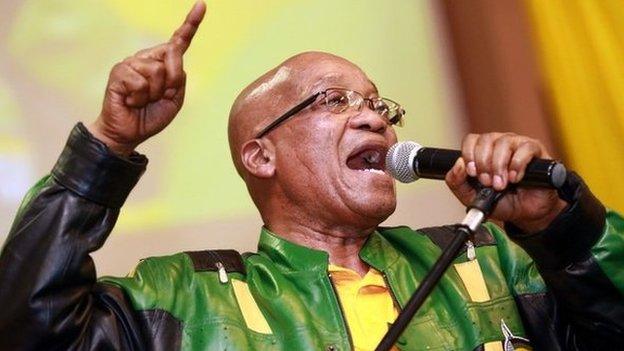Jacob Zuma painting: Are South Africans 'too free'?
- Published
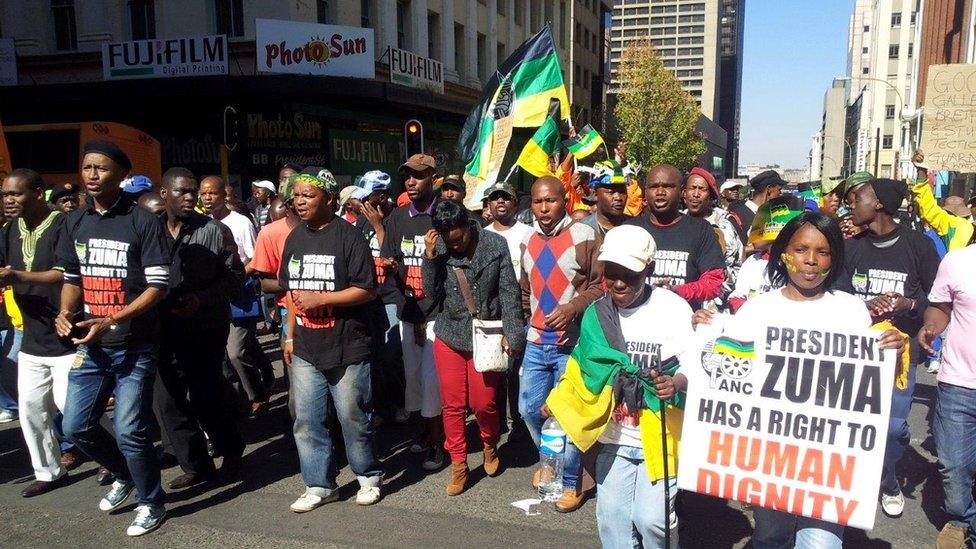
Jacob Zuma supporters have in the past protested against unflattering depictions of the president
A painting showing South Africa's President Jacob Zuma engaging in a sex act has sparked a debate in the country about the right to offend.
The caricature is the work of controversial artist Anyanda Mabulu.
Before his latest work he had angered South Africans after he pictured President Zuma doing a Zulu dance while exposing his genitalia.
Many have called his latest work offensive, culturally inappropriate, a taboo and un-African.
President Zuma's party says the artwork is an affront to the constitution:
"The ANC condemns this form of commentary and views it as an abuse of the right to freedom of speech and media," its spokesman Zizi Kodwa said in a statement.
"Mabulu's exhibition is a grotesque act of vulgarity and disrespect, and a blatant violation of the right to dignity of those portrayed."
Mabulu has however defended his work, saying his artistic rights are protected in the constitution.
The opposing views have now ignited a debate on whether the country's much lauded constitution is too liberal for its own citizens.
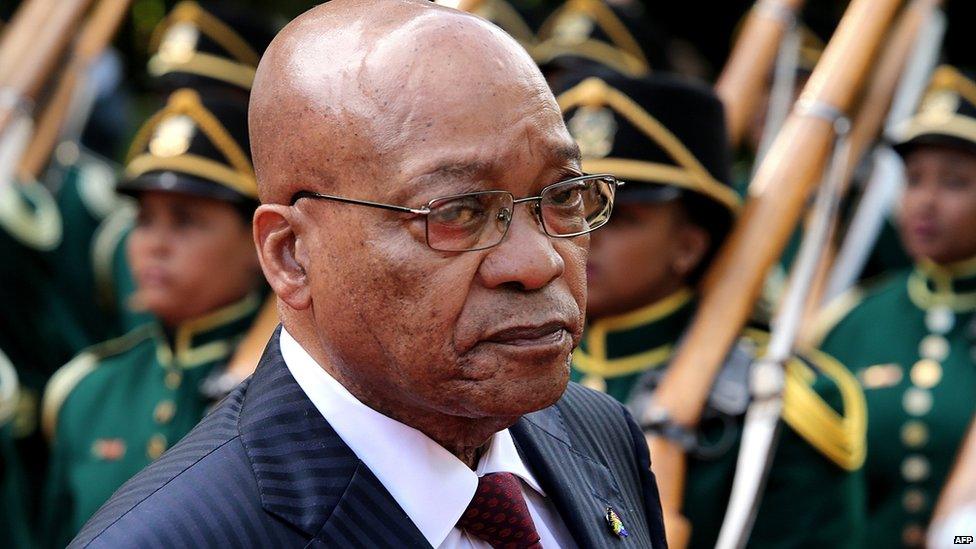
South Africa's Presidency Jacob Zuma has courted controversy many times during his term
Tusi Fokane, executive director at the Freedom of Expression Institute, an NGO set up at the end of apartheid in 1994 to protect and foster the right to freedom of expression, did not want to comment on the painting but said:
"The right to freedom of expression under section 16 of the constitution includes freedom of artistic impression."
"You can only limit the right in terms of the limitations that are already set down in the constitution which include incitement of violence, hate speech or incitement to war," she adds.
Pitika Ntuli, a historian and artist, disagreed with Mabulu's style but echoed the famous quote from Beatrice Hall: "I do not agree with what you have to say, but I'll defend to the death your right to say it".
"I wouldn't paint a painting like that but I can choose a different symbolic way to express my art," Ntuli said.
"But it is his right as a portrait painter to depict what he feels he sees around him."
Mabulu is not the only artist to have targeted President Zuma.
In 2012, Brett Murray reprised a propaganda painting of Vladimir Lenin, but with Mr Zuma's penis hanging out of his trousers.
This sparked many protests and two people threw paint over the picture.
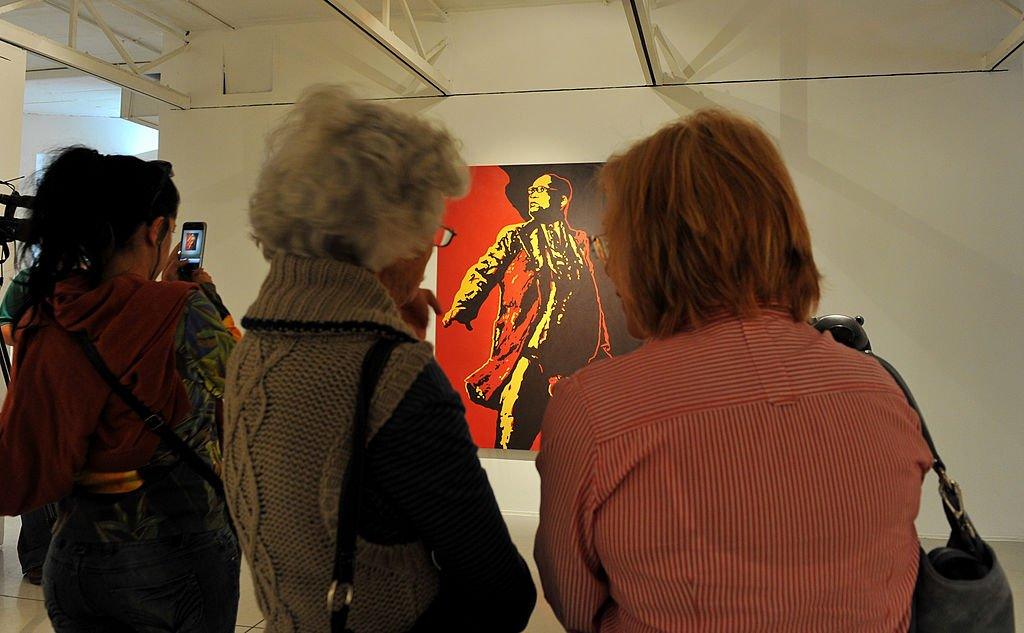
Brett Murray's painting of Jacob Zuma was later defaced
Mabulu defends his latest painting saying that he wanted to make a political point.
He said he wanted voters to know who they would be voting for ahead of local elections due on 3 August.
The polls are being keenly watched for signs that the ANC might be losing the electoral dominance it has enjoyed since the end of apartheid in 1994.
"I am trying to expose him! The people need to know this beast," Mabulu told the BBC.
He defended himself from accusations of being obsessed with Zuma.
"I do other works of art and other paintings. I did a series on Black Lives Matter to highlight the plight faced by black people in the US and in Europe. "
"But nobody talks about it. People just want to focus on the negative."
The irony here is that while many people vehemently disagreed with Mabulu's portraits, they support and defend the sanctity of the constitution which gives him the right to artistic expression.
- Published1 April 2016

- Published6 July 2012
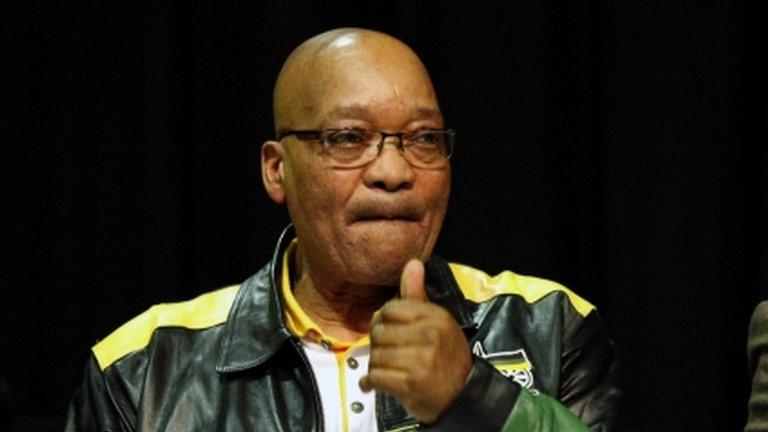
- Published28 May 2012
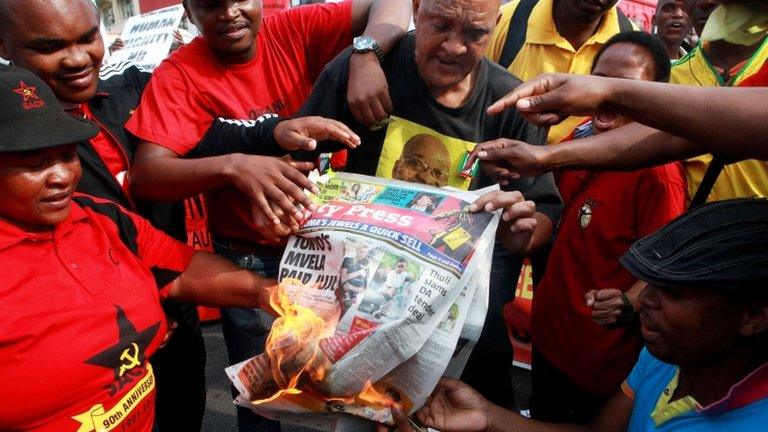
- Published6 April 2018
